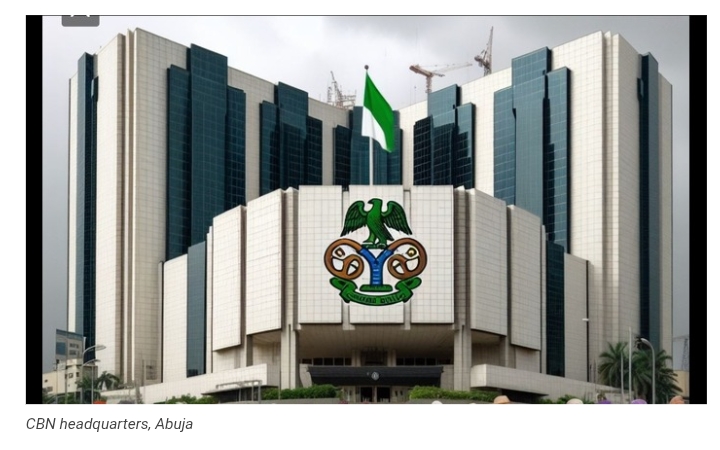E-Financial
UBA Grows Loan Book By 26.7%, Income Hits N48Bn

United Bank for Africa Plc (UBA) has released its nine months financial results, showing a significant 26.7% growth in loan portfolio, as the bank positions to take advantage of emerging opportunities in Nigeria’s fast growing economy.
The nine months results put the bank’s new loan portfolio position at N870.4 billion as at September 2013, representing a 26.7% increase on N687.4 billion on the bank’s loan portfolio for full year of 2012.
Explaining the significant growth in the Group’s loan portfolio, Phillips Oduoza, group managing director, said the growth was “In line with our guidance for loan growth. We increased our exposure to the power, upstream oil and gas and telecoms sectors of the economy”.
UBA played actively in the financing of big ticket deals, especially in the power sector recently, with potential long term impact on the bank’s future profitability. Some of the major deals UBA actively participated in include taking up $120m (N19.44bn) of the financing in respect of Transcorp Ughelli Power Plant.
The bank also acted as Mandated Lead Arranger, underwriting the entire facility of $122m (N20bn) for Kann Utilities’ acquisition of the Abuja Electricity Distribution Company, financing the payment of 75% acquisition of 60% equity stake in Ikeja Electricity Distribution Company while the bank also threw its financial weight behind Aura Energy for the Acquisition of Jos Electricity Distribution Company, acting as the lead arranger for N9.6 billion loan to finance the payment of 75% of Aura’s 60% equity stake in Jos Electricity Distribution Company.
“We firmly believe that the effect of the asset creation decisions we have taken this quarter will have a sustained impact on our revenue growth” Oduoza explained in a statement from the bank.
The impact on revenues is already being seen as the bank announced gross earnings of N188 billion, representing 12.5% increase from N167.1 billion in the same period of last year while riding on the back of the expansion in loan book, interest income rose 18.8% to N133 billion from N112 billion.
Oduoza said that the “Results for the quarter reflect strong contributions from UBA’s Corporate Banking as shown in the increase in interest income generated from loan growth from Corporate Banking Division and from African Commercial Banking Groups”
Also customer confidence in the Group’s brand continues to soar as total deposits rose 22.1% to N2.17 trillion.
Explaining the significant increase in deposits, Ugochukwu Nwaghodoh, chief finance officer of the UBA Group said, “The bank was able to effectively leverage its branch network in Nigeria and across eighteen countries in Africa to generate cheap deposit”
The bank is already seeing some of the benefits of its positioning with a significant 28.5% increase in total comprehensive income for the period to N48.74billion, compared with N37.92billion in the same period of last year.
A profit of N43.4billion was achieved for the period, representing an increase of 2.8% over the N42.2billion recorded in the corresponding period of last year.
There was also significant increase in other key performance indicators with total assets rising by 13.5% to N2.58 trillion from N2.27 trillion while total equity rose 17.2% to N225.6 billion from N192.5billion.
“Our bank remains resilient and our focus is on delivering a set of full year results that will be able to adequately reward our shareholders. We are already reaping the benefits of operating an African strategy that is anchored on our in-depth knowledge of every market we operate in”. Oduoza said.
Oduoza also assured that UBA remains focused and committed to achieving set targets for 2013 “especially, our long term aspirations of being the leading financial services institution in Africa”, explaining that “Project Alpha”, which details UBA’s strategic intent to take advantage of Africa’s fast growing economy to boost the bank’s growth, ” is beginning to bear the expected results as we are now reaping the benefits of delivering an improved customer experience and improved electronic banking platform to our various customer segments”.
United Bank for Africa (UBA) is Africa’s global bank with operations in 19 African countries including Nigeria, as well as offices in New York, London and Paris providing broad-based banking services to over seven (7) million customers. The Group offers a bouquet of banking services and products designed to meet the specific banking needs of its diverse multi-cultural and multi-lingual customer base in three uniquely different continents.
E-Financial
Senate Considers Bill to Empower CBN to Regulate Fintech

Senate on Thursday began debate on a bill seeking to amend the Banks and Other Financial Institutions Act (BOFIA) 2020 to empower the Central Bank of Nigeria (CBN) to designate and supervise systemically important non-bank financial institutions, particularly major fintech operators whose activities now constitute critical national infrastructure.

Leading the debate, Tokunbo Abiru, sponsor of the bill and chairman of the Senate Committee on Banking, Insurance and Other Financial Institutions, said the amendment had become urgent due to the rapid transformation of Nigeria’s financial ecosystem and the emergence of large technology-enabled service providers operating at a scale previously unseen in the country.
Abiru noted that fintechs such as mobile money operators, payment service banks, wallet providers, digital lenders and switching companies now serve tens of millions of Nigerians, process huge daily transaction volumes and hold vast pools of sensitive financial data, yet operate within a regulatory framework that has not fully evolved to match their systemic importance.
“The reality today is that a non-bank institution, because of its market dominance, data concentration, customer reach or technological capacity, may pose risks equal to or even greater than those posed by a traditional bank,” Abiru said.
“We are therefore confronted with a regulatory gap that leaves critical parts of the financial system operating outside the highest tier of statutory oversight. This bill seeks to correct that mischief.”
He warned that without modernising BOFIA, the country risked exposing itself to data insecurity, foreign control of sensitive financial infrastructure and vulnerabilities that could undermine national security.
The senator stressed that many fintechs operate across foreign-owned networks, store customer data offshore, or use cloud systems outside regulatory reach, raising concerns around data sovereignty.
“Today, we cannot say with certainty where all the financial and behavioural data processed by some of these institutions is stored, who has access to it, or which foreign jurisdictions may lay claim to it,” he said.
Abiru recalled the temporary CBN restriction on fintech onboarding in April 2024, following issues around KYC compliance, money-laundering red flags and suspicious transactions, a development that, he said, demonstrated the limitations of existing regulatory tools.
The amendment bill proposes five key objectives, including establishing a statutory framework for designating systemically important institutions, creating a national registry of fintechs, empowering the CBN to impose enhanced supervisory requirements, strengthening data sovereignty, and improving consumer protection.
He dismissed suggestions that a new regulatory agency should be created for fintech oversight, arguing that such duplication would fragment regulation and undermine efficiency.
“Fintech regulation is deeply intertwined with monetary policy, payments oversight, prudential supervision, and systemic-risk monitoring, functions that already reside naturally within the Central Bank,” he said.
“International best practice overwhelmingly favours integrating fintech oversight within existing regulators, not creating new bureaucracies.”
Abiru urged the Senate to support the bill, which carries no financial implications under Senate rules.
Contributing to the debate, Adams Oshiomhole, former president of the Nigerian Labour Congress (NLC), shared the experience of how his accounts were once hacked, disclosing that the hackers accessed him through one of the Fintech banks.
Oshiomhole also said the identities of most of the key owners of online operators were not known and might not be held accountable for infractions since there was no law binding them to any commitments.
“I know the directors of our regular banks, but I can’t say the same of these Fintech banks.
“I don’t know the directors of MoniePoint, Opay and all others”, he added.
Oshiomhole further argued that when properly regulated through an enabling law, the operations of online financial institutions would better serve the interest of Nigerians.
Senators unanimously passed the bill for second reading and referred it to its Committee on Banking, Insurance and Other Financial Institutions for more legislative work.
E-Financial
Binance Launches ‘Binance Junior’ Crypto Savings Account for Kids and Teens

Binance, global cryptocurrency exchange, has announced the launch of Binance Junior, a new parent-controlled savings app designed for children and teenagers between the ages of six and 17.

Binance
The company said the initiative would allow parents to open and manage crypto savings accounts for their children, enabling them to save and earn digital assets in a secure environment.
According to Binance, the platform restricts trading activities but permits savings through its Flexible Simple Earn feature, while parents retain full oversight of all transactions.
Co-Chief Executive Officer of Binance, Yi He, said the product was part of the firm’s broader family finance initiative aimed at preparing the next generation for financial literacy in a digital economy.
“As parents who love our children, we not only nurture them in their early development but long-term growth with responsibility and wisdom.
“Financial health and literacy are key to preparing them for the future, especially as money is evolving,” she said.
The company explained that teenagers aged 13 and above would be able to initiate transfers within the app, subject to daily limits and local regulations, while parents would be notified of every transaction and could disable accounts at any time.
Binance also unveiled a self-published educational book, ABC’s of Crypto, which introduces children and families to basic concepts of blockchain, security, and digital assets in a simplified format.
The firm noted that Binance Junior would be available in select countries via the Apple App Store and Google Play Store.
E-Financial
CBN Scraps Cash Deposit Limits, Raises Weekly Withdrawal Threshold

Central Bank of Nigeria (CBN) has removed the limit on cash deposits and raised the weekly cash withdrawal limit across all channels to N500,000, up from N100,000.

CBN
The apex bank disclosed this in a circular to all banks titled “Revised Cash-Related Policies”, signed by Dr. Rita Sike, Director, Financial Policy & Regulation Department.
According to the CBN, the policy is designed to reduce the cost of cash management, strengthen security, and curb money laundering risks associated with the economy’s heavy reliance on physical currency.
“These policies, issued over the years in response to evolving circumstances in cash management, sought to reduce cash usage and encourage accelerated adoption of other payment options, particularly electronic payment channels. With the effluxion of time, the need has arisen to streamline the provisions of these policies to reflect present-day realities,” the CBN stated.
Effective January 1, 2026, the circular announced several key changes. The cumulative deposit limit has been removed, and the fee previously charged on excess deposits will no longer apply.
The CBN also stated that the cumulative weekly withdrawal limit across all channels has been reviewed to N500,000 for individuals and N5 million for corporates. Withdrawals above these thresholds will attract excess withdrawal charges as specified in the circular. In addition, the special monthly authorisation that allowed individuals to withdraw N5 million and corporates N10 million once a month has been abolished.
For Automated Teller Machines (ATMs), daily withdrawal remains capped at N100,000 per customer, with a maximum of N500,000 weekly, which forms part of the overall weekly withdrawal limit applicable to all channels, including point-of-sale (POS) transactions.
The circular further disclosed that excess withdrawals above the stipulated limits will attract charges of 3 per cent for individuals and 5 per cent for corporate customers, shared in the ratio of 40 per cent to the CBN and 60 per cent to the operating bank or financial institution.
Banks have also been directed to load all currency denominations in ATMs, while the existing limit on over-the-counter encashment of third-party cheques remains pegged at N100,000. Such withdrawals will also be counted as part of the cumulative weekly limit.
Additionally, banks are required to render monthly returns to the relevant supervisory departments, including the Banking Supervision Department, Other Financial Institutions Supervision Department, and the Payments System Supervision Department.
The CBN clarified that revenue-generating accounts of federal, state, and local governments, as well as the accounts of microfinance banks and primary mortgage banks held with commercial and non-interest banks, are exempted from the new withdrawal and excess-fee rules. However, the long-standing exemption previously enjoyed by embassies, diplomatic missions, and aid-donor agencies has been removed.

 E-Business3 days ago
E-Business3 days agoReport says Human Error Fuels Breaches as Only Half of Professionals Receive Cybersecurity Training

 E-Financial3 days ago
E-Financial3 days agoFBNQuest Merchant Bank Confirms New Ownership Structure, Sets Stage for Future Growth

 E-Business3 days ago
E-Business3 days agoCyber Tsunami Hits Nigeria as Breaches Surge 1,047%, esentry Q3 Report Reveals

 General News3 days ago
General News3 days agoNigeria’s GDP Rises to 3.98% in Q3 2025, Driven by Agriculture, ICT, and Finance

 General News3 days ago
General News3 days agoIHS Nigeria Leads Gender Based Violence Awareness Walk, Reaffirms Zero Tolerance with Advocacy Seminar

 E-Financial3 days ago
E-Financial3 days agoMoniepoint MFB Launches Moniebook to Transform MSMEs Operations

 E-Business2 days ago
E-Business2 days agoJumia’s Data Shows Nigerians Turning to Digital Retail to Navigate Inflation Pressures

 Telecom3 days ago
Telecom3 days agoAfrica Data Centres Partners CSSi SA to Boost Data Sovereignty in South Africa






















